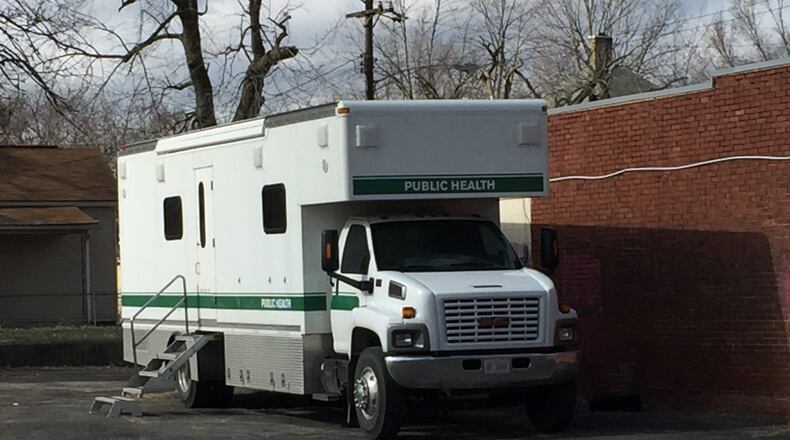The public health truck is parked there from 1 to 4 p.m. on Tuesdays, according to Health Commissioner Jackie Phillips. She said the local program, which works in conjunction with the Cincinnati Exchange Project and Hamilton County Public Health, is entering its fourth year.
The Middletown site was a very busy site for the program in 2018 as the it averaged about 212 client visits a month and on average, exchanged 7,198 syringes a month.
According to the city health department, there were 86,380 syringes exchanged, and 2,002 doses of Narcan were given to clients in 2018.
The program cost $42,129 in 2018, using a $15,000 grant from Butler County Mental Health and Addiction Recovery Services and $27,129 in funds from the Middletown Health Department and City Manager’s budgets, Phillips said. She said BCMHARS contributed another $15,000 for the purchase of additional Narcan doses in 2018.
In 2019, $52,129 has been budgeted for the Middletown program, she said.
Phillips called the needle exchange truck “a first line of defense” and a harm-reduction initiative to protect the health of the clients as well as the community. In addition to exchanging needles and distributing Narcan, the project works to reduce the number of dirty needles in the community and try to address other health issues such as Hepatitis A, Hepatitis B, Hepatitis C and HIV infections.
“We have a chance to connect with individuals and encourage them to seek treatment opportunities,” Phillips said. “We also engage this population with referrals for food, medical attention, housing and social services.”
Public health staff also provide flu shots for the clients as well as provide health information such as the safe ways for injections.
MORE: Here’s what it actually costs a city like Middletown to fight opioids for a year
During April through December 2017, there were 1,656 client visits to the Middletown location serving 993 clients and 167 new clients. Testing was done on 39 clients. The site also exchanged 65,953 syringes and 358 doses of Narcan during that time period, according to health department’s statistics.
In 2016, the Middletown location had 466 client visits with 23 referrals to drug treatment, five referrals to food pantries, seven referrals to clothing resources, three referrals to primary care doctors, two referrals to the emergency room, and one referral to the Carepoint program in Dayton. That year, the Middletown location performed 15 HIV tests and 16 Hepatitis C tests.
In 2018 testing for diseases, there were:
- 62 clients tested for Hepatitis C with 33 clients or 53 percent testing positive
- 88 clients tested for HIV with no clients testing positive
- 261 take-home pregnancy tests distributed
- 17 clients referred for addiction treatment
- 7 clients referred for medical treatment
About the Author

